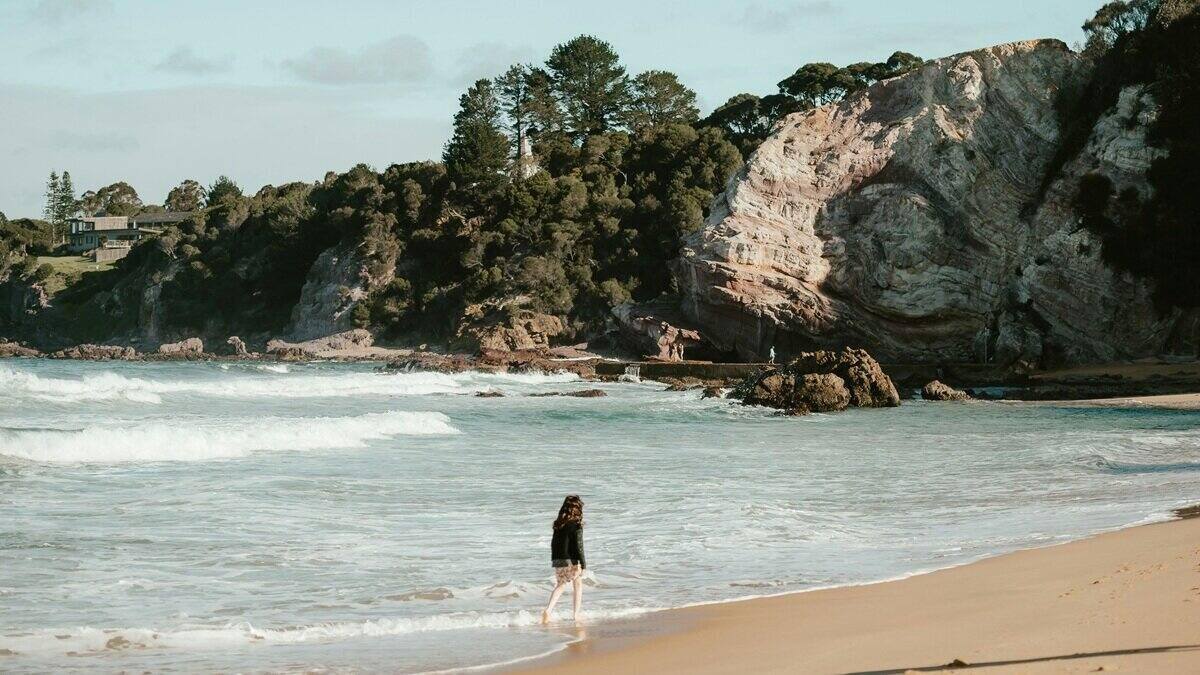Imagine waking up and stepping out of your back door straight onto the sand at your favourite beach destination. Or listening to bird song from the deck of your rainforest retreat.
A holiday home is an attractive prospect, especially if you're regularly visiting a destination. However, financing a holiday home purchase can be a little different to buying a principal place of residence or investment property.
Can you get a mortgage for a holiday home?
Not everyone is lucky enough to have a house-worth of cash tucked away. Many will need to take out a mortgage in order to buy a holiday home – and your borrowing power and deposit requirements might differ based on how you plan to use the property.
Do you want the home to be empty when you're not there?
Those seeking a holiday home might imagine leaving a second wardrobe and spare toothbrush in the property, ready for them when they visit. However, this might make financing the purchase slightly more complex.
Generally in Australia, you can only have one principal place of residence (PPOR). If you plan to make the holiday home your main residence, even if you only stay there part of the year, you may qualify for an owner-occupier home loan. Otherwise, lenders will generally treat it as an investment property, which requires a different loan product.
When assessing an application for an investment home loan, banks and lenders generally consider expected rental returns as an additional income stream. If you're not expecting to earn an income from a property, you'll likely have to prove you can service the mortgage through other channels.
Do you want to offer the property as a short-term rental?
Maybe you plan to rent the property out on a short-term basis for the majority of the time and potentially use it yourself if it's ever unrented.
In this case, the property will likely be classed as an investment and you'll likely need to go down the investment home loan route. This has one particular benefit: your lender will likely consider expected rental income alongside your other income, potentially allowing you to borrow more.
Want the best of both worlds? Rent the property and stay there too
Buying an investment property you plan to offer on the short-term rental market only when you don't wish to stay in it yourself is a similar process as if you were to offer it for rent 100% of the time.
Your lender will likely still consider the property an investment, though proving how much income you expect to garner from it could prove slightly trickier.
However, the stickier point you'll likely want to consider is related to tax, which we'll get to a bit.
Looking for a competitive investment home loan? Check out these low-rate deals:
Lender Home Loan Interest Rate Comparison Rate* Monthly Repayment Repayment type Rate Type Offset Redraw Ongoing Fees Upfront Fees Max LVR Lump Sum Repayment Extra Repayments Split Loan Option Tags Features Link Compare Promoted Product Disclosure
Promoted
Disclosure
Disclosure
Other ways to finance a holiday home purchase
You might not need a new loan to finance a holiday home purchase.
Of course, you might have enough savings. If you do, buying a holiday home is as simple as putting in an offer, paying stamp duty and other purchasing costs, and enjoying it.
Or, if you've built up significant equity in your home or another property, you could tap into it to buy a new holiday home. You might choose to:
-
Top up an existing mortgage
This is probably the simplest option. Many banks and lenders allow a borrower to 'top up' their home loan, borrowing more funds through the same facility. The catch is that most will restrict the amount you can borrow via top up to 80% of your property's value. -
Refinance your home loan
Or, you might choose to switch your home loan to a new lender or product and, in the meantime, increase the amount you're borrowing through the facility. This isn't quite as simple as topping up a home loan but it's not too complicated, and you might walk away with a better mortgage deal. -
Selling an investment property
If you have equity tied up in another investment, you might choose to sell that asset and use the liquified funds to buy a holiday home. -
Take out a reverse mortgage
If you don't have the income to service a new loan but you do own your home, you could choose to take out a reverse mortgage to access your equity in order to buy a holiday home. If this is something you're considering, it's important to note the risks of reverse mortgages and the fact that your holiday home will be assessed under the Age Pension asset test.
Holiday homes and tax: What buyers need to know
Let's be real. How many of us can actually afford to buy a holiday home and leave it empty for the majority of the time? Plenty of wishful sea- and tree-changers looking to take the first step into a more idealistic market will probably need to secure some form of income from their property.
And income means income tax. But income tax can mean tax deductions.
Tax deductions for holiday homes
The tax deductions you can claim on a home you sometimes access for personal use differ slightly from those you can make on a traditional investment property.
When you own an investment property, you can claim expenses and deductions on your tax return, offsetting some of the income tax you might otherwise pay on your rental income or salary.
However, these deductions are generally only available for the portion of time a property is 'genuinely available for rent'.
What does 'genuinely available for rent' mean?
So, if you buy a home by the beach and you, your family, or your friends stay in it for three weeks over the Summer holidays, a fortnight at Easter, and three more weeks scattered through the year, it won't be considered 'genuinely available to rent' for a total of eight weeks a year.
If it's available and listed on a short-term accommodation platform for the remaining 44 weeks (85% of the year), you can likely deduct 85% of its ongoing costs and depreciation from your taxable income.
The word 'genuinely' plays an important role here.
The property will not be considered available for rent if:
-
You're not advertising it or you're advertising it in limited ways
-
You're only advertising it during periods it's unlikely to be rented out (like the off-season)
-
If it's being advertised for an exorbitant price compared to similar properties
-
You're placing undue restrictions on potential customers (like unreasonably disallowing children or pets)
-
You deny interested parties the ability to rent it without cause
-
The location, condition, or accessibility of the property make it unappealing
Basically, you can't have your cake and eat it too – if you don't want to rent the property out but you do want to claim expenses at tax time, tough luck. The ATO doesn't play games.
Expenses you can claim even for the time you use a property
That said, there are some expenses you can claim 100% of at tax time, even if you use the property at times.
Costs you bear in order to rent out your property to the public – like advertising costs, short-term accommodation platform fees, the cost of cleaning before and after tenants, and costs relating to repairing damage caused by tenants – can generally be claimed in full.
What to consider before giving friends and family a discount
There are also specific tax rules surrounding times when you might rent your property to friends or family for below market rates.
On such occasions, you can only claim expenses worth up to the value of the rent you received. So, if your brother-in-law paid you $200 a week to stay in your holiday home, you can only claim $200 worth of expenses for that period.
Holiday homes and local laws: What to look out for
With the rise of platforms like Airbnb and the ongoing rental crisis, it's becoming increasingly common for local governments to restrict short-term holiday lets or charge them additional fees.
Some councils, like Brisbane City Council, charge some owners of short-stay accommodation a surcharge on their rates. Short-stay accommodation providers in the Queensland capital also need a permit to offer their properties on the market.
Other areas, like Greater Sydney and the NSW Central Coast, restrict the number of days per year non-hosted properties can be rented on the short term market.
If you're planning to buy a holiday home, it's worth looking into restrictions on short-term rentals in the area you'd like to buy and keeping an eye on the local government's approach to holiday accommodation.
Other costs to consider when contemplating buying a holiday home
Beyond mortgage interest, cleaning fees, and advertising costs, there are numerous other expenses related to owning a holiday home that are easy to overlook at first. Some big ones include:
Insurance
Insurance providers might view holiday homes as higher risk than regular investment properties, given the larger number of people using the space and the potential for long-term vacancies.
Not to mention, many of Australia's nicest locations are also at higher risk of bushfires, climate change impacts, or national disaster than the nation's cities. Insurers might take this into account.
Stamp duty
Many states and territories charge higher rates of stamp duty to those buying a property they don't plan to use as their PPOR. This can amount to thousands of dollars of additional tax.
Opportunity cost
Holiday homes offer an enviable lifestyle opportunity, but as investments, they may not perform as well as a traditional rental property.
Holiday home income often relies on seasonal demand and tourism, which can fluctuate with broader economic conditions. They might also be harder to sell in a downturn, given many are located in smaller, regional communities.
Make sure to weigh up the risks and rewards of investing in a property for lifestyle benefits.
Image by Annie Spratt on Unsplash
First published in March 2023
Collections: Property Investment






Share